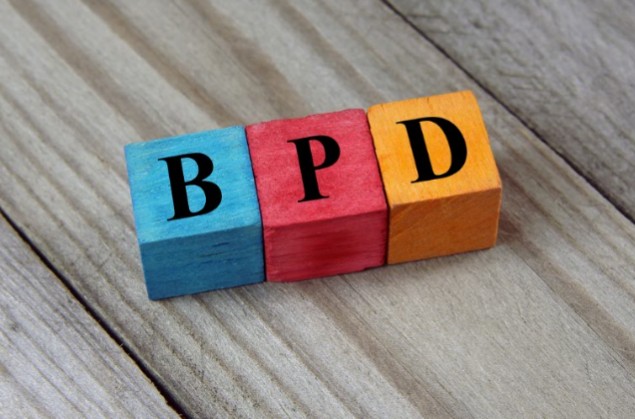Personality Development
Behind the Smile: Unmasking Passive-Aggressive Behavior
How to recognize, understand, and strategically deal with the hidden hostility of passive-aggressive personality types.
 (Photo: shutterstock)
(Photo: shutterstock)"No problem. I’m on it!" announced Michael. "Don’t worry, I’ll clean the whole house!"
Dorit found it hard to believe. She was used to him making promises, starting to do things, and stopping halfway. But once again, she "fell into the trap" she had promised herself so many times she wouldn’t fall into again.
"Okay," she replied. What choice did she have? He was showing so much goodwill- how could she not believe him? It felt downright unfair not to accept his gesture.
Michael started cleaning energetically, humming cheerful songs to himself. Dorit was happy too. "How lovely," she thought, "it’s nice that he’s helping like this."
One hour before Shabbat the floor was still wet, it just needed one final mop. The kitchen hadn’t been cleaned yet, but he said he would get to it in time. And then, it happened…
"Oh no," Michael sighed, "I forgot to call my parents to wish them a Shabbat Shalom!"
He dropped everything, went to the phone, and Dorit realized that he had once again left her stuck in the middle of a project he promised to take on. Once again, he had found a way to hurt her under the guise of "morality".
Meet Passive-Aggressive Personality Disorder
These individuals are experts in their field, and if you’ve fallen into their hands, you’re in trouble! Whether you're their partner, co-worker, manager, or employee, you’re likely suffering.
I’ve encountered the chaos and manipulation that such a person can cause in a relationship. They exude innocence and victimhood, and many people feel sorry for them. They play the "martyr." A partner living with them for the first few years will be very confused- angry on one hand, but full of guilt and pity on the other.
Eventually, they begin to realize that something doesn’t add up. They notice the recurring pattern of being blamed through guilt-tripping and they recognize that their partner is a master at playing the victim. The bigger problem is that the partner has no intention of changing.
If you schedule a meeting with them, they might know you’re on a tight schedule but will arrive late anyway. They'll justify the delay in such a way that if you complain, you’ll end up appearing as the inconsiderate one.
Another classic behavior is with partners where one is a light sleeper. Suddenly, the other "feels like" making a bit of noise- not too much, but just enough to wake their partner.
Passive aggressive individuals are creative, but this is also their weakness. If you must deal with such a person, it’s crucial to understand both their strengths and weaknesses.
Why Do We Call It "Passive-Aggressive"?
There’s an inherent contradiction in the term: "passive" yet "aggressive" which is precisely their "secret"!
You might recognize the silent treatment when someone goes mute without explanation. For example, a husband comes home smiling and says hello, but the wife is dead silent. He tries again but gets no reply. Eventually, he realizes something is wrong but doesn’t know what. He feels accused, through silence. The behavior is passive, but the message is aggressive. This is classic passive-aggressive behavior.
It’s important to note that this doesn’t indicate that the person has a personality disorder, as many people behave this way occasionally. However, it is still problematic behavior that must be addressed.
What You Need to Know
On the surface, passive-aggressive individuals can be very impressive. They know how to appear moral, calm, generous and simply wonderful.
However, when you hire them, or marry them, you notice the problems they create. They have no rules and they surprise you in the worst ways. When you confront them, they promise to change and you believe them, until next time.
At home, they’ll portray themselves as the underappreciated employee or the victim of injustice. They often carry the vibe: "Pity me, poor me, I’m being wronged even though I’m so good!" They truly believe it and seem to draw satisfaction from being the "victim".
They struggle to see others happy and therefore create "entanglements" that bring misery to those around them. Some say- and it often seems- that they genuinely enjoy making others miserable.
Such a person uses their classic passivity to bring down the mood, and with time, they can destroy the lives of their partner and children.
 (Photo: shutterstock)
(Photo: shutterstock)How to Handle It
If you’re married to someone with Passive-Aggressive Personality Disorder, it's important to understand that the chances for change are very slim.
Generally, it’s best not to rely on them. If you ask for help, they’ll feel that their "territory" is being invaded, and punish you accordingly. Work on developing patience and don't react to their passive provocations. It’s hard, but the payoff is worth it.
Because your emotional reaction is their fuel, they act out to unbalance you and see you suffer. When you react in anger or pain, they’re encouraged to continue their toxic tactics. It is therefore recommended to remain cool and collected so that you don't fuel them.
They may intensify their behavior when they notice a change in you, but the more consistent you are, the more they’ll lose their grip. Eventually, they’ll realize their tactics don’t work on you, and they'll stop (or at least reduce) their negative behaviors.
This method can be helpful for any passive-aggressive behavior, even if not a diagnosed personality disorder.
One Last Insight
Passive aggressive individuals have low emotional intelligence and are disconnected from their own feelings, as well as yours. Once you strip away their passive-aggressive tools, they lack the tools to make you feel bad and may move on to someone else who doesn’t see through them.
If you work with such a person, they might dump projects on you and get angry if they’re not done. Keep records, request confirmations, document everything, and keep your distance.
If you’re having trouble, keep in mind that they lack the ability to read the emotional room. Let them expose their own behavior without reacting impulsively, and eventually, they’ll do the damage to themselves.

